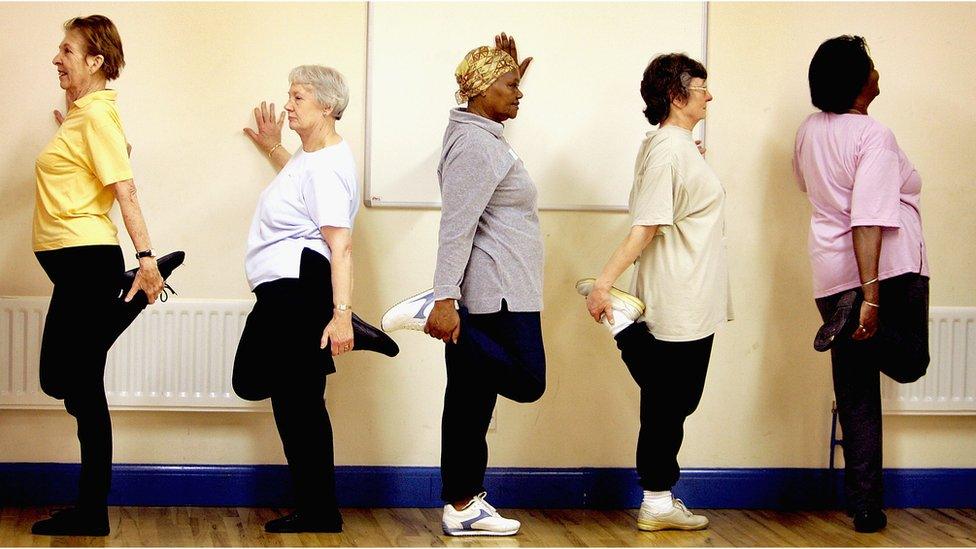Women lose fight against delay to state pension
- Published

Hundreds of thousands of women who are fighting against delays to their state pension have had their hopes dashed.
Many women born between April 1951 and 1960 have claimed they were not aware that their pension age was being raised by up to six years.
Although there had been talk of a compromise solution, the new Work and Pensions Secretary has told MPs that will not be possible.
"I don't see there is a do-able policy solution," said Stephen Crabb MP.
Members of the campaign group Women Against State Pension Inequality (Waspi) said they were disappointed, but were still hopeful that a solution could be found.
Many of those affected say they have been left without enough money to live on, and not enough time to make alternative arrangements.
'Fiscally impossible'
Two weeks ago, the Pensions Minister, Ros Altmann, told the BBC that she was hoping to help the women.
MPs on the Work and Pensions Committee had also suggested a compromise, that would not cost the tax-payer any extra money.
They said the women should be allowed to claim their pensions early, if they wanted to, but at a reduced rate.
But Stephen Crabb rejected that, saying, "When I've discussed that, some of the women have said that's not actually what they want".
"It is just fiscally impossible," he said.
"And I think it's irresponsible for anyone in this House of Commons to try to pretend, or lead these women into thinking there's an easy decision to be made."
Pensions Act
"I am disappointed, but still hopeful," said Marion Smulders, a co-founder of Waspi.
"There is a cross-party parliamentary group on this. I trust they will have further contact with Stephen Crabb, and hope he will re-visit this."
She said a lot of women affected would have been happy with the compromise suggested by the Work and Pensions Committee, although it would not be acceptable for everybody.

When will you get a state pension?

The government's state pension calculator is available here., external

Under the 1995 Pensions Act, the government decided that the pension ages of both men and women would be equalised by 2020. Previously, women retired at 60, while men retired at 65.
In 2011, state pension ages were raised at an even faster rate.
The government has said that everyone was told about the changes, but many women say they never received the information.